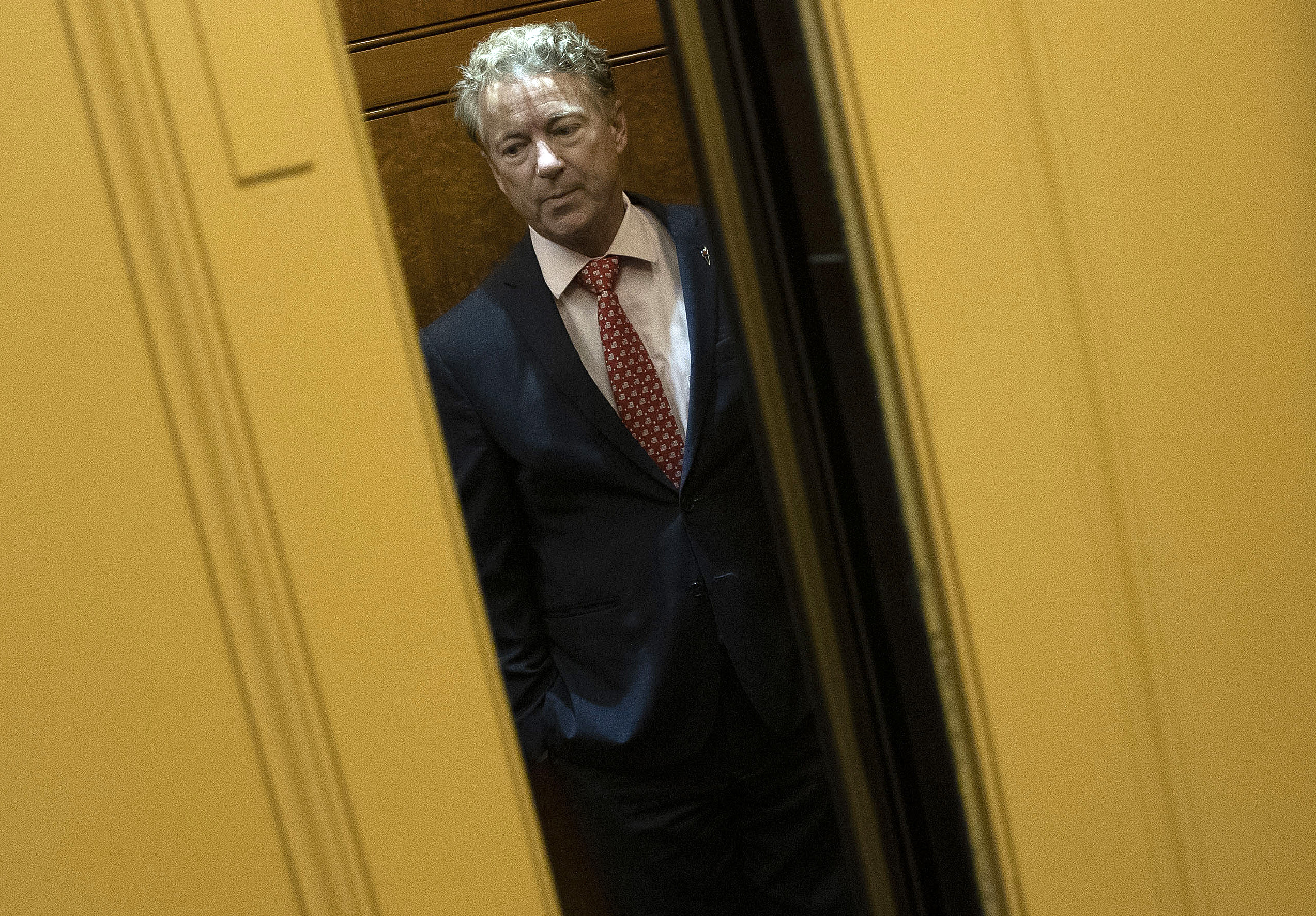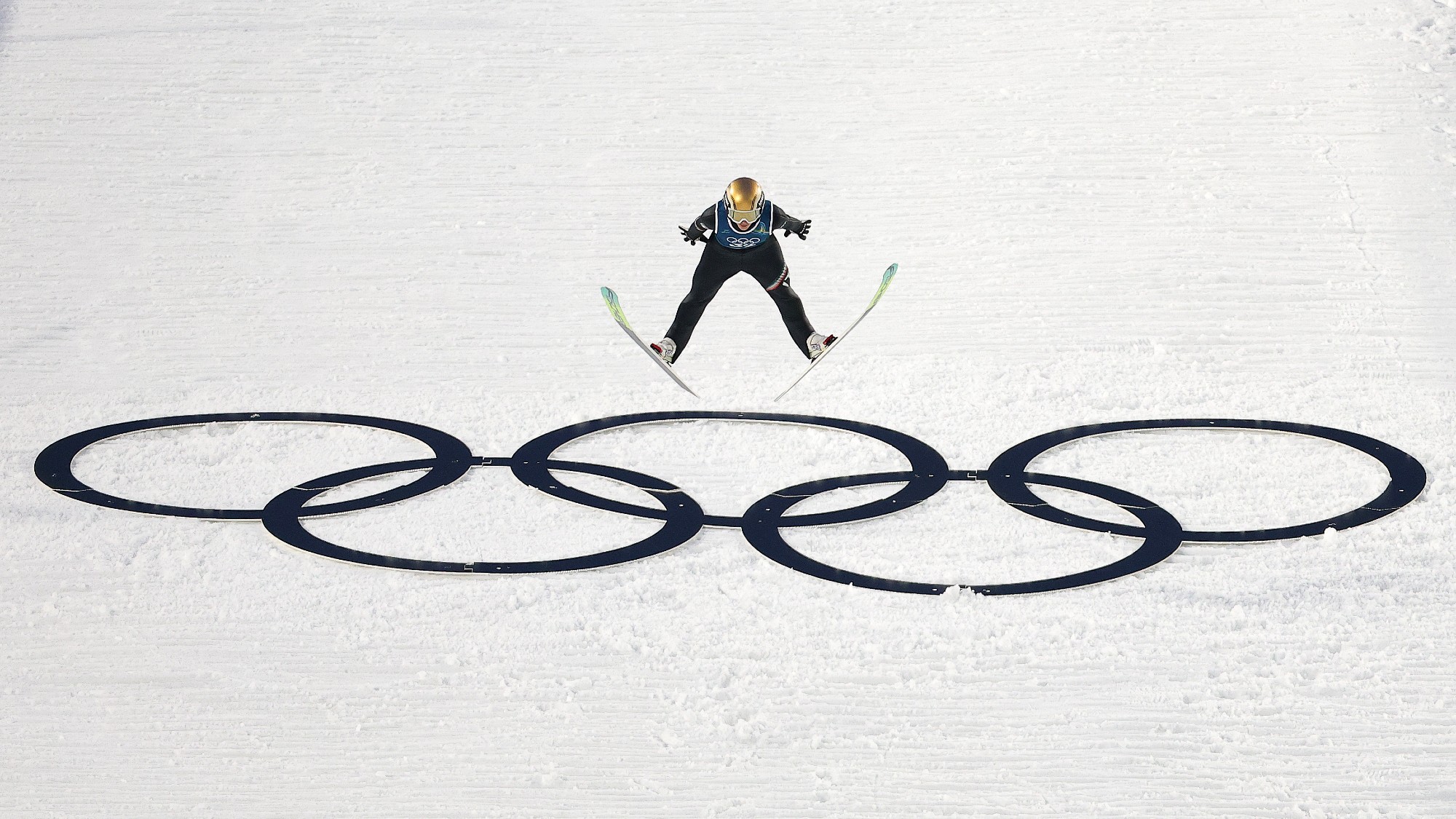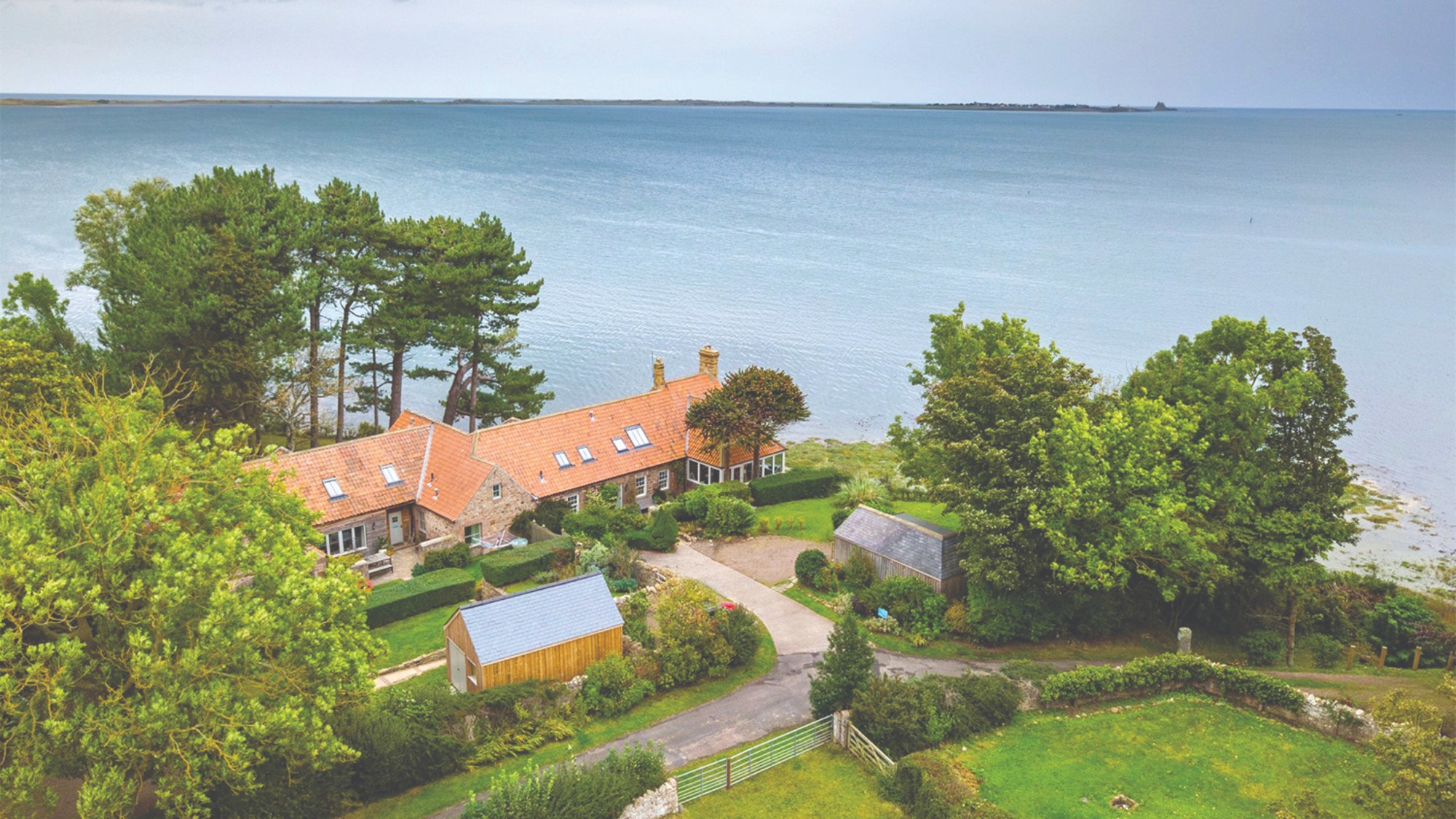10 things you need to know today: March 23, 2020
The Senate fails to pass its COVID-19 aid bill, Sen. Rand Paul tests positive for coronavirus, and more


- 1. Senate fails to advance coronavirus aid bill
- 2. Rand Paul tests positive for coronavirus
- 3. Ohio joins states imposing stay-at-home orders
- 4. Trump sends hospital ships to New York, California
- 5. Trump: Automakers given approval to make ventilators
- 6. Olympic officials concede Tokyo Games might have to be postponed
- 7. Trump activates National Guard in 3 states hit hard by coronavirus
- 8. Report: U.S. eliminated public-health position in China before outbreak
- 9. Pompeo travels to Afghanistan to push stalled peace process
- 10. U.S. criticizes France for releasing Iranian in prisoner swap
A free daily email with the biggest news stories of the day – and the best features from TheWeek.com
You are now subscribed
Your newsletter sign-up was successful
1. Senate fails to advance coronavirus aid bill
Senate Democrats on Sunday blocked a $1.8 trillion coronavirus stimulus bill from moving to a final vote, saying the legislation didn't go far enough to protect workers and placed too few restrictions on businesses receiving bailouts. Sen. Elizabeth Warren (D-Mass.) called a $500 billion loan program for businesses, states, and localities, to be handled by the Treasury Department, a "slush fund to boost favored companies and corporate executives — while they continue to pull down huge paychecks and fire their workers." Senate Majority Leader Mitch McConnell (R-Ky.) said the bill included many of the Democrats' proposals, and it was time for them to "take 'yes' for an answer." Treasury Secretary Steven Mnuchin said Sunday night that negotiators from the two parties were "very close" to a deal on the package, which includes a one-time $1,200 payment to individual adults.
The Washington Post The New York Times
2. Rand Paul tests positive for coronavirus
Sen. Rand Paul (R-Ky.) has tested positive for COVID-19, according to a Sunday post to his Twitter account. He is the first member of the U.S. Senate to be infected. "He is feeling fine and is in quarantine," the post read. Paul is the third member of Congress to test positive. Rep. Mario Díaz-Balart (R-Fla.) was the first, followed by Rep. Ben McAdams (D-Utah). Utah's two Republican senators, Mitt Romney and Mike Lee, both said they had decided to self-quarantine because they had been in contact with Paul. President Trump, told by a reporter that Romney, a frequent Trump critic, had gone into isolation, said, "Gee. That's too bad." Sen. Kyrsten Sinema (D-Ariz.) meanwhile reserved a rare criticism for Paul, who had apparently been in the Senate gym and pool while awaiting test results.
The Week
Escape your echo chamber. Get the facts behind the news, plus analysis from multiple perspectives.

Sign up for The Week's Free Newsletters
From our morning news briefing to a weekly Good News Newsletter, get the best of The Week delivered directly to your inbox.
From our morning news briefing to a weekly Good News Newsletter, get the best of The Week delivered directly to your inbox.
3. Ohio joins states imposing stay-at-home orders
Ohio Gov. Mike DeWine (R) announced Sunday that the state is imposing a stay-at-home order to help fight the spread of the new coronavirus. The order allows people to venture out to get groceries and medicine, exercise, seek medical care, or walk dogs, but otherwise instructs them to stay in their houses and apartments. DeWine noted the policy is similar to "shelter-in-place" orders issued in other states, including New York, California, and Illinois. The Ohio order goes into effect at 11:59 p.m. Monday, and lasts until April 6, when DeWine's administration will reassess it.
4. Trump sends hospital ships to New York, California
President Trump on Sunday approved sending Navy hospital ships to California and New York to support the coronavirus response in these hard-hit states. The move came after New York City Mayor Bill de Blasio urged Trump to send military medical specialists to his city and other coronavirus hot spots. "The military is the best logistical organization in the nation," de Blasio said on NBC's Meet the Press. He also said that all available ventilators around the country should be sent to places that don't have enough of them. Anthony Fauci, director of the National Institute of Allergy and Infectious Diseases, said the federal government would channel resources to areas hit by COVID-19.
A free daily email with the biggest news stories of the day – and the best features from TheWeek.com
5. Trump: Automakers given approval to make ventilators
President Trump tweeted on Sunday that Ford, General Motors, and Tesla were "being given the go ahead to make ventilators" and other products needed to fight the COVID-19 coronavirus. "FAST!" Trump wrote. "Go for it auto execs, let's see how good you are?" It was not immediately clear what authorization the Trump administration had given to the automakers. Trump last week signed an executive order invoking the Defense Production Act, a law dating back to the Korean War that lets the federal government draft American industry into manufacturing supplies during a crisis. Tesla founder and CEO Elon Musk said last week his company would "make ventilators if there is a shortage," but the companies haven't started and it could take months for them to deliver.
6. Olympic officials concede Tokyo Games might have to be postponed
Olympic officials acknowledged on Sunday that they might have to postpone the Tokyo Summer Games due to the coronavirus pandemic, after insisting for weeks they would proceed as planned. "Together with all the stakeholders, we have started detailed discussions today to complete our assessment of the rapid development of the worldwide health situation and its impact on the Olympic Games, including a scenario of postponement," Thomas Bach, the president of the International Olympic Committee, wrote in a letter to Olympic athletes Sunday. Bach said canceling the games outright was out of the question, but that the IOC would make a decision on postponement within four weeks.
7. Trump activates National Guard in 3 states hit hard by coronavirus
President Trump announced on Sunday that he was activating National Guard units in New York, California, and Washington — three states that have been hit especially hard by the COVID-19 coronavirus pandemic. Through the Federal Emergency Management Agency, the government will be funding "100 percent of the cost of deploying National Guard units to carry out approved missions to stop the virus while those governors remain in command," he said. Air Force Gen. Joseph Lengyel, chief of the National Guard Bureau, said the troops could be used for such missions as guarding shipments and offloading food and supplies, but would not be enforcing curfews. There are 32,149 confirmed cases of COVID-19 in the United States, and at least 400 people have died.
8. Report: U.S. eliminated public-health position in China before outbreak
The Trump administration eliminated the job of an American disease expert in China several months before the coronavirus outbreak was detected in Wuhan, Reuters reported Sunday, citing four sources on the matter. The medical expert, Dr. Linda Quick, had been embedded in China's disease control agency, where she trained Chinese field epidemiologists and was ideally situated to spot disease outbreaks. She left the post in July. "If someone had been there, public health officials and governments across the world could have moved much faster," said Bao-Ping Zhu, who served in the role between 2007 and 2011. The Centers for Disease Control and Prevention said the elimination of the position, which it funded, "had absolutely nothing to do with CDC not learning of cases in China earlier."
9. Pompeo travels to Afghanistan to push stalled peace process
Secretary of State Mike Pompeo arrived in Afghanistan on Monday for an emergency trip aiming to push forward the peace deal the U.S. signed with the Taliban last month. The peace process has been stalled partly due to a stalemate over who really won last September's presidential election. President Ashraf Ghani was declared the winner, but his rival, Abdullah Abdullah, claims victory too. They held rival inauguration ceremonies earlier this month. Pompeo will meet separately with Ghani and Abdullah, and then plans to meet with them together. Pompeo has leverage to push a compromise, as the U.S. pours billions into Afghanistan's budget every year. The U.S. and NATO already have started withdrawing troops since the deal was signed.
10. U.S. criticizes France for releasing Iranian in prisoner swap
The Trump administration on Sunday slammed France for releasing, in an apparent prisoner swap with Iran, an Iranian man sought by the U.S. State Department. Department spokesperson Morgan Ortagus said France had failed to uphold its commitments to the U.S. under a joint extradition treaty when it released Jalal Rohollahnejad, who the Trump administration wants to bring to the U.S. to face charges of violating American sanctions against Iran. "The United States and France have a shared interest in bringing those accused of serious crimes to justice, particularly in cases with national security implications," Ortagus said. "It is regrettable in this instance that France failed to uphold its treaty obligations and prevented justice from being pursued."
Harold Maass is a contributing editor at The Week. He has been writing for The Week since the 2001 debut of the U.S. print edition and served as editor of TheWeek.com when it launched in 2008. Harold started his career as a newspaper reporter in South Florida and Haiti. He has previously worked for a variety of news outlets, including The Miami Herald, ABC News and Fox News, and for several years wrote a daily roundup of financial news for The Week and Yahoo Finance.
-
 What to watch out for at the Winter Olympics
What to watch out for at the Winter OlympicsThe Explainer Family dynasties, Ice agents and unlikely heroes are expected at the tournament
-
 Properties of the week: houses near spectacular coastal walks
Properties of the week: houses near spectacular coastal walksThe Week Recommends Featuring homes in Cornwall, Devon and Northumberland
-
 Will Beatrice and Eugenie be dragged into the Epstein scandal?
Will Beatrice and Eugenie be dragged into the Epstein scandal?Talking Point The latest slew of embarrassing emails from Fergie to the notorious sex offender have put her daughters in a deeply uncomfortable position
-
 10 things you need to know today: January 24, 2024
10 things you need to know today: January 24, 2024Daily Briefing Trump closes in on nomination with New Hampshire win over Haley, 'Oppenheimer' leads the 2024 Oscar nominations, and more
-
 10 things you need to know today: January 23, 2024
10 things you need to know today: January 23, 2024Daily Briefing Haley makes last stand in New Hampshire as Trump extends polling lead, justices side with US over Texas in border fight, and more
-
 10 things you need to know today: January 22, 2024
10 things you need to know today: January 22, 2024Daily Briefing DeSantis ends his presidential campaign and endorses Trump, the US and Arab allies push plan to end Gaza war, and more
-
 10 things you need to know today: January 21, 2024
10 things you need to know today: January 21, 2024Daily Briefing Palestinian death toll reportedly passes 25,000, top Biden adviser to travel to Egypt and Qatar for hostage talks, and more
-
 10 things you need to know today: January 20, 2024
10 things you need to know today: January 20, 2024Daily Briefing Grand jury reportedly convened to investigate Uvalde shooting response, families protest outside Netanyahu's house as pressure mounts for hostage deal, and more
-
 10 things you need to know today: January 19, 2024
10 things you need to know today: January 19, 2024Daily Briefing Congress averts a government shutdown, DOJ report cites failures in police response to Texas school shooting, and more
-
 10 things you need to know today: January 18, 2024
10 things you need to know today: January 18, 2024Daily Briefing Judge threatens to remove Trump from his defamation trial, medicine for hostages and Palestinians reach Gaza, and more
-
 10 things you need to know today: January 17, 2024
10 things you need to know today: January 17, 2024Daily Briefing The US strikes Houthi targets in Yemen a third time, Trump's second sex defamation trial begins, and more
